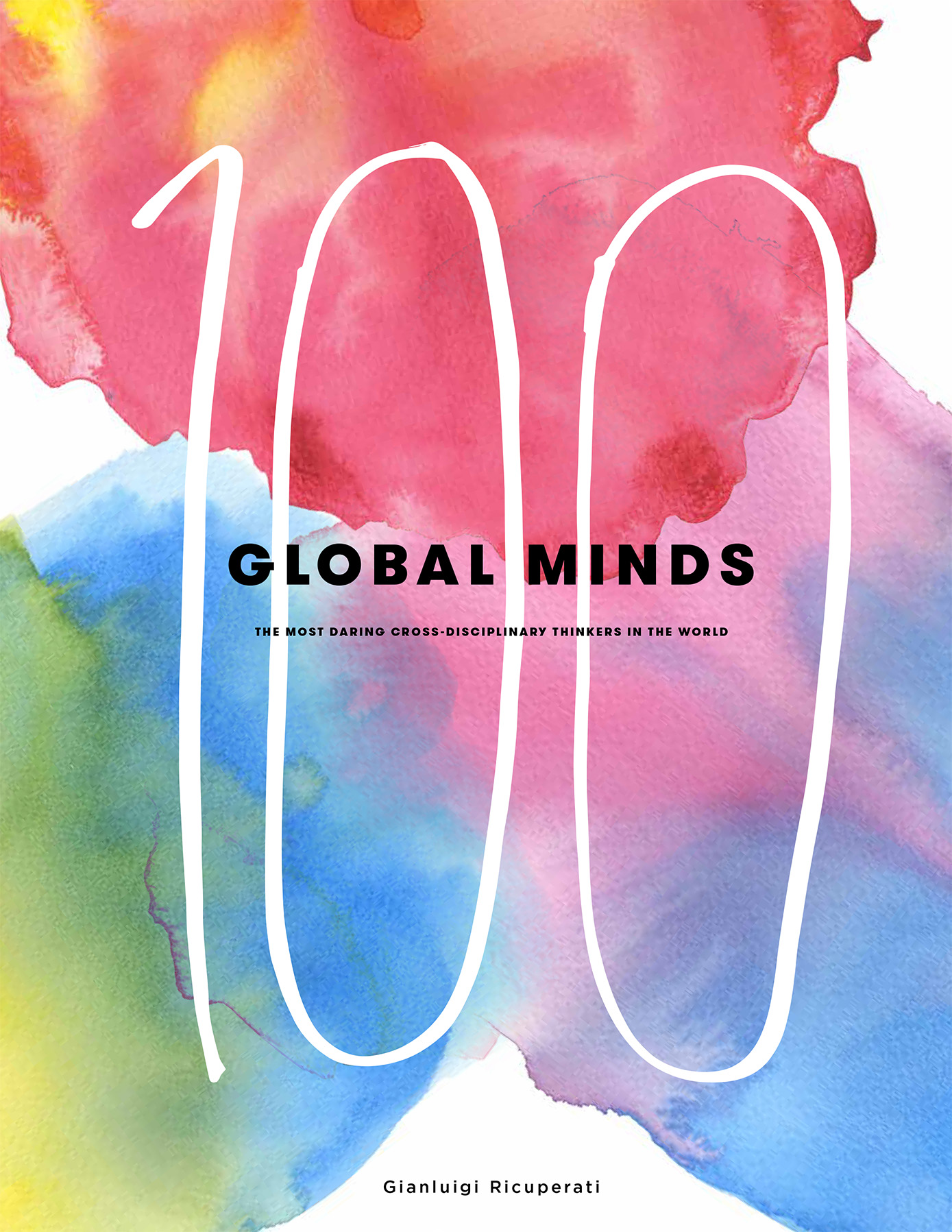7 December 2015
100 Global Minds is a book that was missing from the vast range of contemporary publishing. Like all good ideas it is based on a simple premise: the formula for success in any field—art, design, music, science, engineering, psychology—requires a certain amount of openness to sectors different from one’s own, and not necessarily related to it. And if at the time of the Black Mountain School, where John Cage and Willem De Kooning taught in the thirties, such an idea was fairly visionary, in today’s society to act like a sponge, or to put it technically, to be “cross-disciplinary,” is indispensable. Thus 100 Global Minds places the expressive eclecticism of the writer Gianluigi Ricuperati and the diaphanous illustrations of David Johnson at the service of a treasure trove of stories of outstanding intellectuals, united by their ability to transfer knowledge between worlds, cultures and disciplines without losing their passion for their own field of action. From the musician Brian Eno to the economist Thomas Piketty, from the psychoanalyst Julia Kristeva to the publisher Roberto Calasso, by way of designers as diverse as they are brilliant, such as Enzo Mari and Neri Oxman. The choice is not an idiosyncratic one, nor is it obvious: Ricuperati has relied on a precise set of parameters, and a prerequisite: the intellectual is someone who writes and communicates his or her understanding, because culture is enriched if it is shared. So he asked university students, free from preconceptions and the expediencies of a professional career, to put forward candidates, and finalized the selection by asking a professor at Turin Polytechnic, Francesco Vaccarino, to come up with an algorithm to measure the level of interdisciplinarity in their online publications. To borrow the words of the inventor of the World Wide Web, Tim Berners-Lee: “This (book) is for everyone.” Published by ROADS.

Tim Berners-Lee

Thomas Piketty

Hans-Ulrich Obrist

Neri Oxman

Enzo Mari

Peter Eisenman

Roberto Calasso

Paola Antonelli

Wes Anderson

Paul Thomas Anderson

Brian Eno

Joseph Grima
